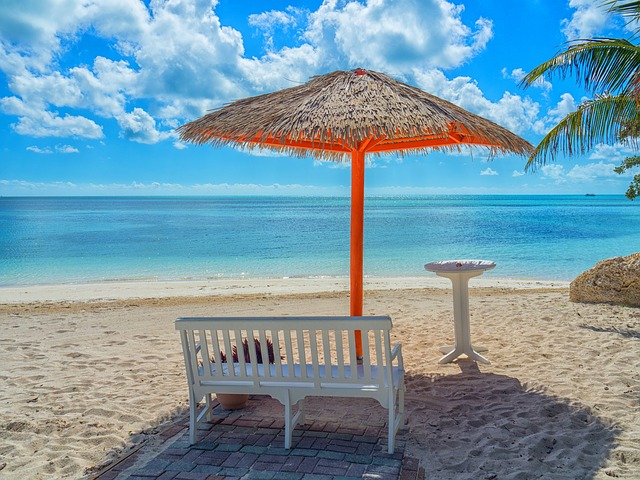

This is a good time to start thinking about summer vacations. I’m sure you’ll remember to pack your shorts and sunscreen, but don’t forget about the tech you might need to make your trip a success. I also have a few non-tech suggestions.
The first tech detour will be during the planning stage when you’ll be using online travel services to plan your lodging and travel arrangements.
If you’re flying, check the big travel sites such as Expedia but also look at alternative sites, such as Kayak, which scan multiple sights for the best price. But, before you book your flight, check the airline’s site as well. They often meet and sometimes beat the prices from third-party travel sites, and by booking from the airline directly, you may get other benefits. Another advantage to booking directly from the airline is that it might be easier to deal with issues that arise later such as changing flights or seats. I’ve had situations (especially with foreign airlines) where the airline has refused to make any changes because I bought the ticket elsewhere and the travel site told me that only the airline could make the change.
My airline advice also applies to hotels, which sometimes promise to give you the best possible online price. But check Trivago and other booking sites to see if you can get better prices than what the hotels offer directly. I’ve seen it both ways – cheaper from the hotel or cheaper from a third party, which is why it pays to shop around.
Hotwire and Priceline can often save you money, especially if your plans are flexible. Some airline sites let you look at alternative dates for lower fares.
I almost always book my car rentals on third-party travel sites because I don’t care which major company I rent from, and it’s great to see all the prices at the same time. I’ve seen radically different offers from different companies on the same class of car.
When booking lodging, consider Airbnb and VBRO to find entire houses or apartments or rooms in someone’s dwelling. Except for an apartment in a rundown building in a sketchy part of Istanbul, my experiences with Airbnb have been great. But do read the reviews and look for extra fees and cancelation policies, which vary by property.
Turo.com is like an Airbnb for car rental. The app lets you rent a car directly from the car’s owner. I’ve never used it, but I’d be tempted because of the vast selection of cars and – in some cases – excellent prices.
Depending on where you live, getting to the airport can be expensive. I hardly ever used taxis because it would cost more than $200 round trip to get from my house to SFO. I used to pay for airport parking but that, too, can be expensive and a hassle. Using Uber Pool or Lyft Line, I can sometimes get from Palo Alto to SFO for as little as $25. If you’re bringing the family, you’ll need an entire car, but even that is often a lot more affordable than parking at the airport.
If you’re going on vacation, you might want to limit the use of tech, but a smartphone is still an essential travel tool to book rides from the road, check the weather, make last minute hotel or ground transportation reservations and to display an electronic boarding pass. And a tool like Google Maps is essential if you’re driving or to make sure a cab driver is sticking to the route (I’ve had drivers in foreign countries take extra-long routes to pad the bill). Uber is available in many countries, and your U.S. Uber App and account work everywhere. Uber also helps break through the language barrier because you don’t have to tell your driver where you’re going as you do in a taxi.
Don’t forget to take along an extra phone charger, and if you’re not traveling with someone else who has a phone, it’s a good idea to bring along a spare phone if you have an older one lying around.
Almost all phone plans work anywhere in the U.S. without any roaming charges, but once you leave the country, it can cost a great deal of money to make calls, send and receive texts and – especially – consume data. There are no roaming charges if you only use WiFi, but if you plan to use a cellular network, make sure you have an affordable roaming plan or purchase a local SIM card in the country you’re visiting. In most cases, you’ll need a separate SIM card for each country, which is why it’s often a lot more convenient to get a good roaming plan from your carrier. AT&T and Verizon offer plans for $10 a day that bring your existing plan to over 100 countries, but you must set it up in advance, and you only pay for the days when you’re using it. T-Mobile, Sprint and Google Fi offer reasonable roaming rates as part of some plans, but check in advance to make sure you’re covered in the countries you’re visiting. WhatsApp is a good and free way to communicate with folks anywhere in the world.
I travel with a laptop, which can be handy, even on vacation, not only for making plans and keeping in touch but watching movies on planes and in hotel rooms. If you have Netflix, download some programs in advance so you can watch them on the plane. You can also download to a phone or tablet with both Netflix and Amazon Prime Video.
I always carry a short extension cord with me not only because it gives me extra cord, but because it allows me to plug in two or three devices into a single outlet (which are sometimes scarce). If you’re going overseas, don’t use a standard power strip because they’re not designed for the higher voltage you’ll get in most countries. Do bring foreign plug adapters but, for most modern electronics, you won’t need a power converter. There are exceptions like my electric toothbrushes and shaver, so I carry a toothbrush that runs on AA batteries and an old-fashion razor for shaving.
This isn’t tech advice, but I always carry Ziplock-type bags when I travel. Depending on the size (I get 2½ gallon size bags from Amazon), they can be used to keep your clothes from getting wrinkled, to separate items in your bag and can be used to store extra food that you might take from breakfast to eat later in the day.
I also travel with a motion sensing LED light that I leave by the hotel bathroom to find my way in the middle of the night and, after having my wallet stolen in Argentina, I carry an extra credit card and ATM card in my luggage or hotel safe.
Have a great trip.